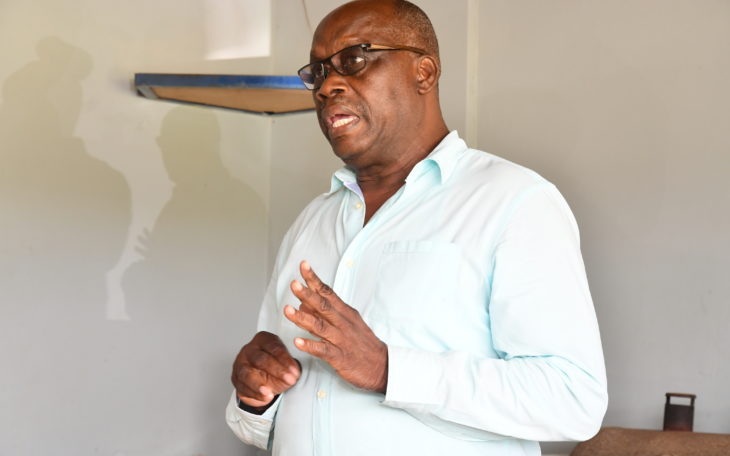Barbados Agricultural Society CEO Expresses Optimism for Agriculture Rebound in 2024 Amidst Weather Challenges

December 23, 2023
"Barbados Agricultural Society CEO remains hopeful for agricultural rebound in 2024 despite weather challenges and consumer expectations. Potential benefits expected with delayed projects starting early in the year."
By Emmanuel Joseph
The head of the nation’s farming umbrella body has expressed optimism that agriculture could rebound in 2024 while cautioning that nature could have the last word.
Barbados Agricultural Society (BAS) CEO, James Paul, cited unexpected weather impacts that hindered production goals as he looked back on 2023 in an interview with Barbados TODAY.
“Many of the things that influence the success or failure of agricultural projects are completely outside of our control,” he said. “We can’t say when it should rain, we can’t control temperatures. All we can do is try to put mitigation measures in place that help us to do our business.”
While acknowledging difficulties in managing weather-related challenges and meeting consumer expectations for locally-produced products, Paul said he remains hopeful for the coming year.
He continued: “The year so far has been a very difficult one for the agricultural sector, both in terms of livestock and fruits and vegetables. We started out this year with great anticipation in terms of being able to do things differently… increase production in every way. There were special challenges because we did not anticipate the type of weather impact that actually did come along.
“That, in itself, meant that the challenges were very great for the farmer in terms of dealing with the impacts of the weather and really trying to cope with them and, of course, manage the expectations of consumers for locally-produced products. Therefore, we did not reach the heights that we wanted to, so far.”
Paul emphasised the potential benefits if certain delayed projects can begin in early 2024.
“There are some projects that we want to start early that we did not get off the ground, and we are now in the process of starting,” he said, though he did not identify the projects. “Somehow, we still have a good sense of optimism. If we can complete some of these things or start some of these things that we want to start now, we will reap the benefits as we go into the New Year.”
While expressing optimism, Paul criticised certain stakeholders, particularly politicians, for making unrealistic promises without a clear understanding of agricultural realities. He called for informed decision-making and collaboration between farmers and policymakers to address challenges effectively.
“Sometimes agriculture is subject to the whims and fancies of persons who have no idea as to what it really takes to produce…. Sometimes there [are] politicians who go about making wild promises based on what they perceive and not on what the reality of the situation is, and without consultation.
“If I summon them to have a discussion with the Lord, it would help, because He would tell them they should not make these wild promises because a lot of it depends on the prevailing conditions that exist.”
Turning his attention to import substitutes, Paul criticised the tendency to rush into importing food products rather than exploring local resources for sustainable development. He argued for a more responsible approach that considers the long-term impact on the country’s resources.
“Importation always seems to be the easy way out for many of the persons who operate in the private sector. I will be critical and say that it seems as if we are hell-bent on producing the type of business person who, instead of examining to see how we can use the resources in our country to help regenerate it, exploit it for what it is worth, and when all runs out, they have no idea as how to replenish it.”
Despite acknowledging Barbados’ foreign exchange challenges, Paul highlighted agriculture’s role in both saving foreign exchange and generating employment. He questioned the prioritisation of activities hindering the sector’s foreign exchange earnings compared to supporting those contributing positively to the country’s economic growth.
“How is it that we sometimes give greater importance to those activities that would seek to prevent the agricultural sector from doing that [earning foreign exchange], rather than emboldening those persons in the agricultural sector who are trying to earn foreign exchange for this country and, at the same time, providing employment for this country?” the BAS CEO queried.
[email protected]


